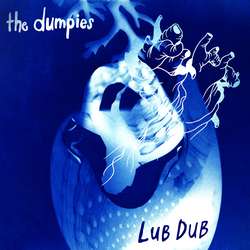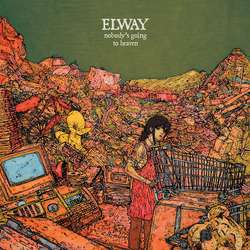The talent and quality of Aisha Devi have been apparent since the release of her first EP, Aura For Everyone through her own Danse Noire imprint. As the years passed, Devi became more ambitious and started honing into the duality between ecstasy and mysticism. Her latter works, in 2018’s fantastic DNA Feelings yielded towards the atmospheric and ambient side, presenting a sublime journey through immersive soundscapes. But, Death Is Home brings back a stronger balance between the early-days immediacy and the more recent atmospherics.
The kickoff with “Not Defined By The Visible” presents a post-club aesthetic, as dance elements come together through piercing synths and bombastic percussion. It becomes a Bacchian dance, one that at times can be direct and in-your-face, defined by the progression. Yet, Devi is capable of altering this approach, aiming for a heavier groove in the latter part of the opener. It is a fantastic change, one that constructs a more towering and overwhelming presence for her electronica, as showcased in “Immortelle.” It also reveals this transition from the post-club ambiance to a darker setting.
Thus the aforementioned Bacchian dance shifts and changes, and with it Devi alternates between darkness and light. ”Lick You Wound” further exemplifies this move towards the mystical. It is further illustrated in tracks like “The Infinite Chemistry of Betwix (Tool”) and “Unborn Yet Alive” as the bright dance floor evolves into the infernal afterparty. And in the grand scheme of Death Is Home it all makes sense, as the progression reveals Devi’s intention. The initial pompous approach is slowly shed away, and what remains in its place is a deeply rooted spiritualism. It becomes particularly powerful in the final triptych of the record, as “The 7th Element” deconstructs the electronica basis, “Prophet Club” disfigures pop catchiness with its understated point of view, and the 8-minute-long opus “Azoth Eyes” moves the entire endeavor towards the post-techno abyss.
Despite focusing primarily on the synthetic instrumentation and Devi’s intricate arrangements and progression, it would be unforgivable not to give kudos for, once again, an overtly creative use of the voice. Here, Devi does not shy away, and she puts her vocal chords through the grinder. Affecting these with intense distortion, doubling and flanging these to no end, but without forgetting at any point the power of their humanity. The start of “Azoth Eyes” sees the voice flourish through an intimate and delicate performance. It is still distorted and altered but it arrives with a great sense of grace and elegance. On the other hand, Devi is not afraid to annihilate this element, pushing her voice through a myriad of effects, as in the second half of “Unborn Yet Alive.” In a sense, the way Devi views her voice and its capabilities is the same as to how she views her music. She finds the sweet spot between extravagance and minimalism, beauty and horror, introversion and exuberance. It is a difficult balance to achieve, but that is what Devi has been thriving for her whole career, and she has never been closer than with Death Is Home.



